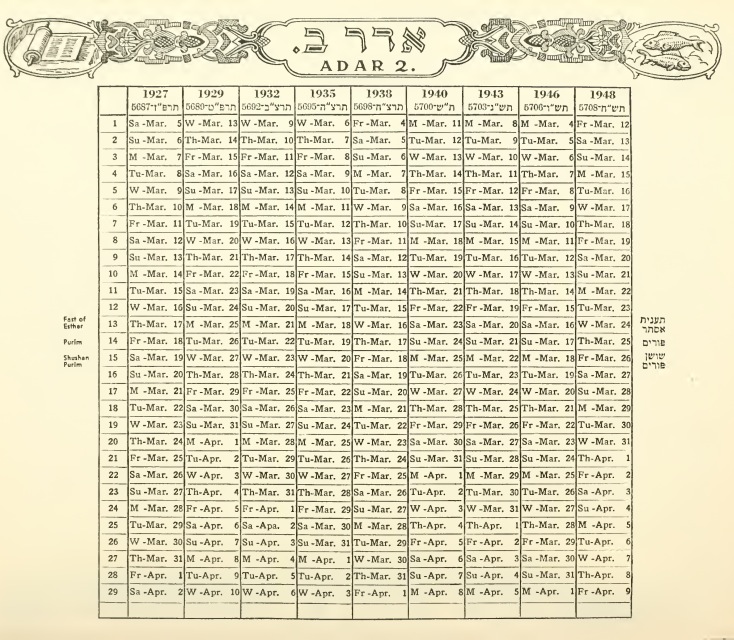|
Yeshayahu Ben Abraham Horovitz Ha-Levi
Isaiah or Yeshayahu ben Avraham Ha-Levi Horowitz ( he, ישעיה בן אברהם הלוי הורוויץ), (c. 1555 – March 24, 1630), also known as the ''Shelah HaKaddosh'' ( "the holy ''Shelah''") after the title of his best-known work, was a prominent rabbi and mystic. Biography Isaiah Horowitz was born in Prague around 1555.''Jewish Encyclopedia'' bibliography: His first teacher was his father, Avraham ben Shabtai Sheftel Horowitz, a notable scholar and author, and a disciple of Moses Isserles (Rema). Horowitz studied under Meir Lublin and Joshua Falk. He married Chaya, daughter of Abraham Moul, of Vienna, and was a wealthy and active philanthropist, supporting Torah study, especially in Jerusalem. In 1590, in Lublin, he participated in a meeting of the Council of Four Lands, and his signature appears on a decree that condemns the purchase of rabbinic positions. In 1602, Isaiah Horowitz was appointed Av Beit Din in Austria, and in 1606 was appointed Rabbi of Frankfurt. ... [...More Info...] [...Related Items...] OR: [Wikipedia] [Google] [Baidu] |
Shelah
Shelah may refer to: * Shelah (son of Judah), a son of Judah according to the Bible * Shelah (name), a Hebrew personal name * Shlach, the 37th weekly Torah portion (parshah) in the annual Jewish cycle of Torah reading * Salih, a prophet described in the Qur'an whom some scholars believe to be the Islamic counterpart of Shelah son of Judah * Salah, sometimes referred to by the name "Shelah", a minor Biblical figure (son of Arpachshad, father of Eber) * Pool of Siloam, also referred to as the "pool of Shelah", a site of Biblical significance in Jerusalem * ''Shenei Luhot HaBerit'', Hebrew initialed "Shelah", 16th-century Rabbi Isaiah Horowitz most influential work * Ofer Shelah Ofer Shelah (, born 9 February 1960) is an Israeli journalist and politician. He served as a member of the Knesset for Yesh Atid from 2013 until 2020. Early life and military service Shelah was born in Kiryat Bialik. He enlisted in the Israel ... (born 1960), Israeli politician * Saharon Shelah (born 1 ... [...More Info...] [...Related Items...] OR: [Wikipedia] [Google] [Baidu] |
Lublin
Lublin is the ninth-largest city in Poland and the second-largest city of historical Lesser Poland. It is the capital and the center of Lublin Voivodeship with a population of 336,339 (December 2021). Lublin is the largest Polish city east of the Vistula River and is about to the southeast of Warsaw by road. One of the events that greatly contributed to the city's development was the Polish-Lithuanian Union of Krewo in 1385. Lublin thrived as a centre of trade and commerce due to its strategic location on the route between Vilnius and Kraków; the inhabitants had the privilege of free trade in the Grand Duchy of Lithuania. The Lublin Parliament session of 1569 led to the creation of a real union between the Crown of the Kingdom of Poland and the Grand Duchy of Lithuania, thus creating the Polish–Lithuanian Commonwealth. Lublin witnessed the early stages of Reformation in the 16th century. A Calvinist congregation was founded and groups of radical Arians appeared in the city ... [...More Info...] [...Related Items...] OR: [Wikipedia] [Google] [Baidu] |
Hebrew Calendar
The Hebrew calendar ( he, הַלּוּחַ הָעִבְרִי, translit=HaLuah HaIvri), also called the Jewish calendar, is a lunisolar calendar used today for Jewish religious observance, and as an official calendar of the state of Israel. It determines the dates for Jewish holidays and the appropriate Torah reading, public reading of Weekly Torah portion, Torah portions, ''yahrzeits'' (dates to commemorate the death of a relative), and daily Psalm readings, among many ceremonial uses. In Israel, it is used for religious purposes, provides a time frame for agriculture, and is an official calendar for civil holidays, alongside the Gregorian calendar. The present Hebrew calendar is the result of a process of development, including a Babylonian calendar, Babylonian influence. Until the Tannaitic period (approximately 10–220 Common Era, CE), the calendar employed a new lunar phase, crescent moon, with an Intercalation (timekeeping), additional month normally added every two or ... [...More Info...] [...Related Items...] OR: [Wikipedia] [Google] [Baidu] |
Nisan
Nisan (or Nissan; he, נִיסָן, Standard ''Nīsan'', Tiberian ''Nīsān''; from akk, 𒊬𒊒𒄀 ''Nisanu'') in the Babylonian and Hebrew calendars is the month of the barley ripening and first month of spring. The name of the month is an Akkadian language borrowing, although ultimately originates in Sumerian ''nisag'' "first fruits". In the Hebrew calendar it is the first month of the ecclesiastical year, called the "first of the months of the year" (Book of Exodus 12:1-2), "first month" (Ex 12:14), and the month of ''Aviv'' (Ex 13:4) ''ḥōḏeš hā-’āḇîḇ''). It is called Nisan in the Book of Esther in the Tanakh and later in the Talmud, which calls it the "New Year", Rosh HaShana, for kings and pilgrimages. It is a month of 30 days. Nisan usually falls in March–April on the Gregorian calendar. Counting from 1 Tishrei, the civil new year, it would be the seventh month (eighth, in leap year), but in contemporary Jewish culture, both months are viewed as t ... [...More Info...] [...Related Items...] OR: [Wikipedia] [Google] [Baidu] |
